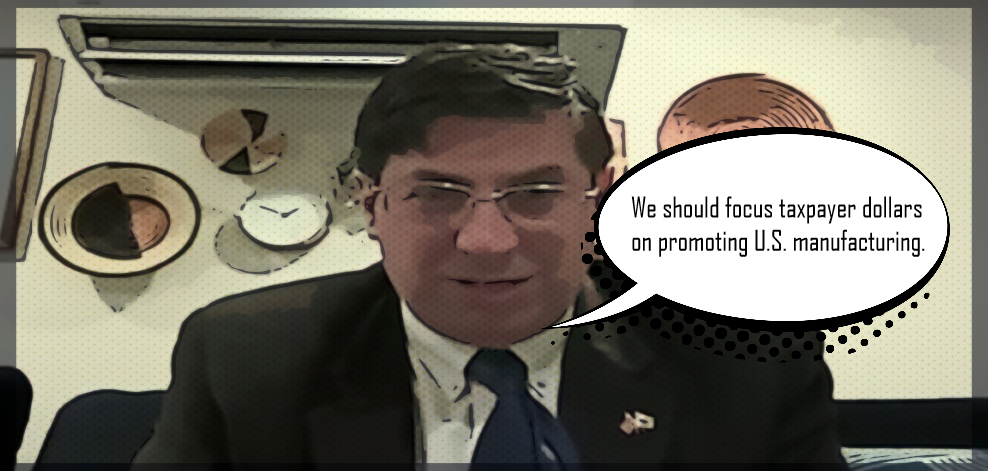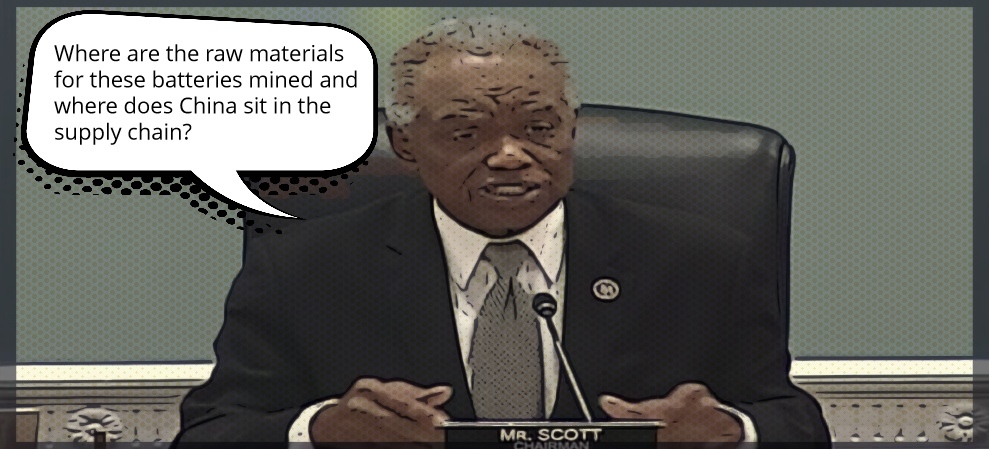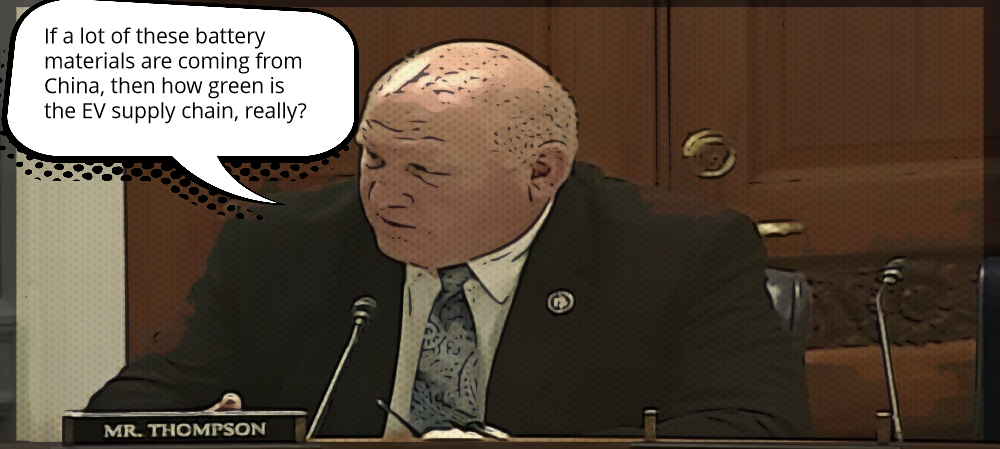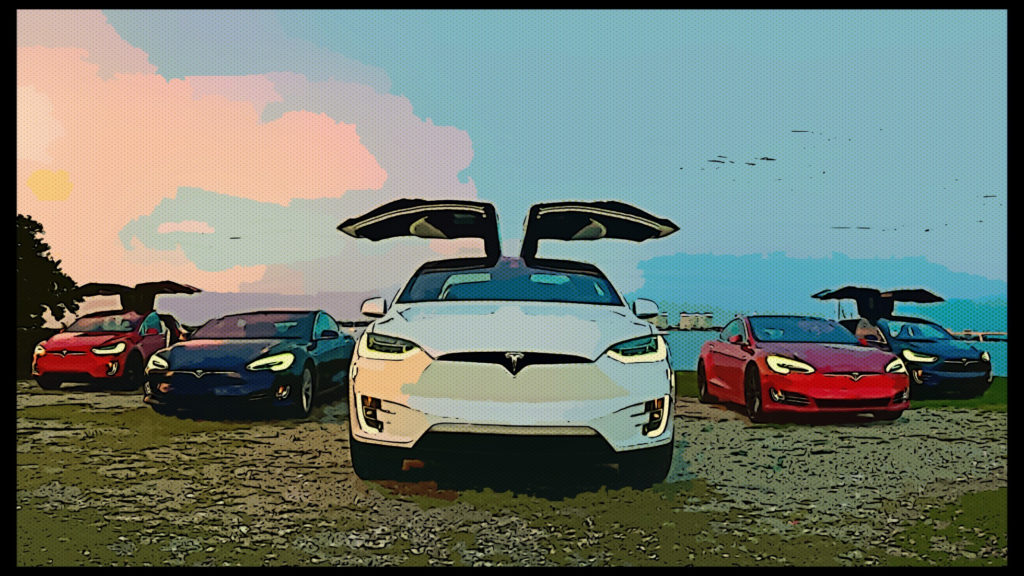The government wants the majority of vehicles on the road by 2030 to be electric, and the Build Back Better Act, which is in currently on life support, has a plan to make those cars in the U.S. The bill would increase the tax credit on EVs from $7,500 to $12,500, but only if they were made in the USA by union labor. Those not made in the U.S. will get still get the $7,500.
Rep. Chris Jacobs (R-NY-27), speaking during a House Agriculture Committee hearing on Wednesday titled “Implications of Electric Vehicle Investment on Agriculture and Rural America”, said his district employees some 2,000 workers at Ford and GM facilities outside of Buffalo. They’re part of the final vehicle’s supply chain, but it is a supply chain that is closely tied to Canada. The vehicle parts go across the border numerous times. Is it an American car, then? Jacobs asked.
“If you give a $12,500 EV credit only for American-made cars…there is a concern among those workers that this would be harmful for companies that rely on this binational model,” he said. “Also, wouldn’t this also be a violation of the USMCA?”
Josh Nassar, Legislative Director at the United Automobile, Aerospace and Agricultural Implement Workers of America (UAW) said that even if the BBB provision did ultimately pass, it would give companies five years to implement and, ultimately, “would not allow imported EVs to get tax credits.”
“The main thing is: do you want to subsidize floods of EVs coming from China, from Mexico, from all over the place, with U.S. taxpayer dollars?” Nassar said. There is no chance Mexico gets included in that as a member of the USMCA.
The Ford Mach-E Mustang is made almost entirely in Mexico.

Josh Nassar, Legislative Director of UAW.
Rep. Jacobs said Canada and Mexico should be included in any tax credits for EV buyers. But, “I agree about flooding from China.”
China cars currently have a 25% tariff. All auto imports have a 2.5% tariff, so China cars coming in cost an extra 27.5% when those two tariffs are included.
A USMCA only tax credit for EVs would never happen, as it would instantly become a WTO dispute as the Europeans get left out. The World Trade Organization already ruled that the 25% China tariffs were against the Most Favored Nations trade status, of which China is a card-carrying member of that status. Both Trump and Biden ignored the WTO, but have yet to ignore the WTO when it comes to other countries.
CPA’s position is that it might be best not to give any tax credits as it is going to be the only way not to subsidize foreign-made vehicles, including foreign-made vehicles made by Detroit automakers. But this can’t be done anytime soon because we now have new domestic EV car companies – Rivian, Lordstown Motors, Bollinger Motors and Lucid Motors — that could use that price break for consumers as they launch into the market. CPA primarily advocates for the full EV supply chain being made here, including battery materials. Tesla recently announced they will do this with some of their nickel supply, for instance.
Agriculture Committee Chairman David Scott (D-GA-13) asked Mark Mills, senior fellow of the Manhattan Institute about the natural resources that go into battery making. “I am concerned about becoming more dependent on China with regard to those natural resources.”
 Mills, one of seven to testify before the Committee on Wednesday, said China has around 90% of the critical minerals supply chain, singling out major battery metal, cobalt. “China has market dominance in refining a lot of those minerals. China is one of the biggest investors in mines, particularly in Africa, where they take the raw material and turn it into useful minerals,” he said about processing those mineral rocks into fine ores and powders that can be used in EVs.
Mills, one of seven to testify before the Committee on Wednesday, said China has around 90% of the critical minerals supply chain, singling out major battery metal, cobalt. “China has market dominance in refining a lot of those minerals. China is one of the biggest investors in mines, particularly in Africa, where they take the raw material and turn it into useful minerals,” he said about processing those mineral rocks into fine ores and powders that can be used in EVs.
Rep. Shontel Brown (D-OH-11) asked about the battery supply chain and jobs. The auto industry, if it ever becomes fully electrified, will require fewer parts, and therefore less labor. If the main component of those vehicles, their batteries, are mostly imported, then the U.S. auto industry and its labor force will shrink considerably.
“We need to do the battery manufacturing here,” Nassar told her. “And not just the packing of the batteries. That’s not a lot of jobs at all. The real jobs are in the processing, which is what China does. You need to engage fully in the entire supply chain and make sure that there are conditions on tax player dollars,” he said.
 Committee Ranking Member GT Thompson (R-PA-15) argued that the market and the government’s analysis of the EV supply chains is “incomplete.”
Committee Ranking Member GT Thompson (R-PA-15) argued that the market and the government’s analysis of the EV supply chains is “incomplete.”
Representatives from rural states said they were also concerned about ethanol blending in fossil fuels falling by the wayside. It seems, to them, that biofuels are no longer part of the plan to reduce carbon emissions in the transportation fleet.
Rumors are circulating among farmers that the EPA might reduce the total volume of biofuels in the nation’s fuel mix. “That’s a great concern if those rumors are true,” said Geoff Cooper, CEO of the Renewable Fuels Association. “If EPA is backtracking on the 15 billion gallon statutory requirement for renewable fuels, then we will insist that they follow through on their commitment and restore it for 2022 and beyond.”













